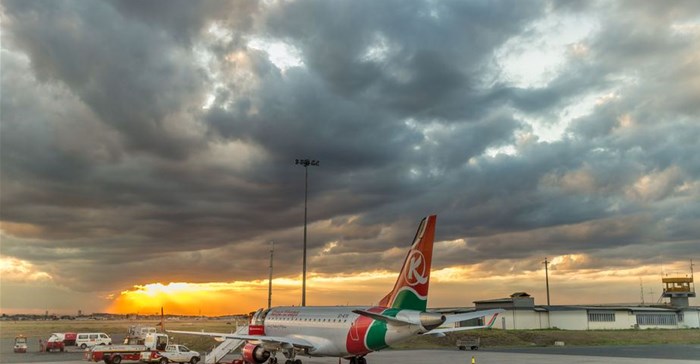Kenya Airways: 'Pride of Africa' tries to stop a long fall

The airline's "Pride of Africa" slogan rang uncomfortably hollow when the 26.22-billion-shilling ($259-million) loss was announced, driven by higher borrowing costs and unfavourable exchange rates.
Kenya Airways, founded in 1977 following the demise of East African Airways, was considered a cash cow just a decade ago, but is now floundering, said independent analyst Aly-Khan Satchu. "In the history of Kenya, no other listed company has ever recorded such an important loss," Satchu said.
A misguided expansion strategy launched in 2011 is the root of the catastrophic state of the firm, a move that called for the purchase of new Boeing planes with the objective of doubling the size of its network.
But since then the Ebola virus and terror attacks on the continent have decimated Africa's tourist numbers, while rivals such as state-owned Ethiopian Airlines and Qatar Airways have boosted their offerings.
The firm has also lost out on rock-bottom fuel prices. Like many airlines, it "hedges" its fuel costs by entering into a fixed-price contracts. But Kenya Airways was locked into longer term contracts than most of its competitors, which gained a competitive advantage as fuel prices have plunged since mid-2014.
Foreign currency "and fuel hedging are exceptional items, yes, but a company like KQ (Kenya Airways) should be able to deal with this," said Satchu about the airline's latest results.
To the dismay of Kenya Airways' two biggest backers - Air France-KLM and the Kenyan government -the firm's share price has dropped from 140 shillings in 2006 to 3.85 shillings. The company's debts exceed a billion dollars.
Despite the gloom, analysts still see some cause for optimism in the numbers. Revenue was up 5% and operating losses shrank thanks to a series of shock treatments imposed on the airline by management last year.
"The operational result is what I'll take from the latest results," said Eric Musau, analyst at Kenya's Standard Investment Bank. "KQ is on the right track, even if they could do a bit more in terms of assets sales," he told AFP, describing the net loss as largely down to exceptional factors.
A number of structural changes are beginning to show fruit. Kenya Airways has sold or rented out planes that were sitting idle, reducing its fleet size by a third, and has rid itself of an expensive permanent landing slot at London's Heathrow airport, opting to rent one instead.
What is at stake is more than just cash. "It is a matter of national and geopolitical interest for Kenya to have a national carrier. You can't be the economic leader of the East African region if you don't have a national carrier," emphasised Satchu.
"I wonder whether Kenya's shoulders are broad enough to rescue KQ again and again. Kenya is not a country like UAE or Qatar," which underwrite world-class airlines such as Qatar Airways, he added.
Kenya Airways' pilots have had a particularly fraught relationship with management, which at one point suggested they could be lent on occasion to rapidly growing Ethiopian Airlines. Protests and strikes followed and the idea was abandoned, but the firm still has to deal with a bloated workforce left over from the disastrous expansion plan.
The fleet and those who fly it, are in the sights of chief executive Mbuvi Ngunze. "The first thing that we are doing now is making sure that we get our business at the right size in order to grow responsibly, and that right size is both revenue and costs," he said. Ngunze announced in March the airline will cut 600 jobs out of its 4,000-strong workforce.
Source: AFP
Source: I-Net Bridge

For more than two decades, I-Net Bridge has been one of South Africa’s preferred electronic providers of innovative solutions, data of the highest calibre, reliable platforms and excellent supporting systems. Our products include workstations, web applications and data feeds packaged with in-depth news and powerful analytical tools empowering clients to make meaningful decisions.
We pride ourselves on our wide variety of in-house skills, encompassing multiple platforms and applications. These skills enable us to not only function as a first class facility, but also design, implement and support all our client needs at a level that confirms I-Net Bridge a leader in its field.
Go to: http://www.inet.co.za





















